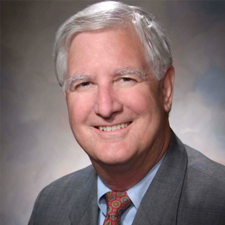Keeping it Simple in Idaho
Bob Maynard is the Marie Kondo of public funds. The Public Employee Retirement System of Idaho (PERSI), which he has headed since 1992, is invested 70/30 in equity and debt, plus a smattering of private equity and real estate, and it remains uncluttered by most recent investment world innovations. “We don’t do factor investing, we don’t do frontier markets, we don’t do infrastructure,” says Maynard who has headed the PERSI since 1992. And he adds, “We don’t do crises.”
 So when the stock market plunged in March, Maynard says, “We never panicked. As its equities slumped and the relative proportion of bonds rose, Idaho PERS moved to rebalance by putting more money into emerging market equities, where it had been underweight. Beyond that, he says, “You don’t change things in the middle of the crisis.”
So when the stock market plunged in March, Maynard says, “We never panicked. As its equities slumped and the relative proportion of bonds rose, Idaho PERS moved to rebalance by putting more money into emerging market equities, where it had been underweight. Beyond that, he says, “You don’t change things in the middle of the crisis.”
Idaho went into the crisis with assets of about $20 billion, and it was 91% funded. By mid-April, it was at about $18 billion and 81% funded. Maynard thinks PERSI’s weathering the storm pretty well, and he’s not surprised. “Regarding the structure that we have right now, we’ve been in the same spot since the 1990s, so this has lasted. It was very robust in 2007 and 2008, and I have great confidence in it.”
Maynard scoffs at the flavor-of-the-month approach to investing. Among the many other things they don’t do at PERSI is hedge currency exposures, use hedge funds, buy tail risk insurance, seek portable alpha, or write covered call options. About half the portfolio is invested passively.
He happily cops to being the anti-endowment model, and he acknowledges that his 70/30 split, an asset allocation which is shared by several other public funds in nearby states, may seem old school. But he says, it has two virtues: One is that it works. Idaho has been in the top quartile among larger public plans.
The second is that, he says, “We’re simple, we’re transparent, and we’re focused.” Everything is daily priced, and we get firm pricing.” Most of its investments are in liquid instruments, and he adds, “Our private stuff is pretty well-established, so we know at the end of the day what it’s worth and what it’s priced at.” There are no vehicles that require model pricing. Everybody knows where things stand.
Simplicity also governs the relationship with Idaho’s 16 outside managers, Maynard says: “We’ve had all of our managers eight or nine years, and some managers for decades.” PERSI’s never fired a manager for performance reasons; they’ve switched only because of mergers or style changes. Idaho has undertaken only two searches in the last dozen years. The managers have clear styles, fairly concentrated portfolios, and no black boxes. “We don’t have quants,” he says.
To be sure, Maynard says he closely monitors all the latest thinking about investing. He’s a member of the 300 Club, a group of global investment professionals set up in 2011 to question many of the foundations of professional investing. But he says, “A lot of the things that people write about and discuss doing haven’t stood the test of time. A lot of stuff on risk controls, on risk parity, on various other ideas in the 2000s have crashed and burned.” He says he’ll be “very curious to see” how some of the most recent investment solutions will have turned out after the current pandemic crisis.
Maynard’s views are shaped by a keen sense of limitations. He has repeatedly said that he can “pick the good from the bad,” but not necessarily separate “the great from the good.” He concedes that sticking with a conventional strategy in difficult market conditions can be challenging. But he insists, “The worst time to make a decision in in the middle of the crisis.” As he sees it, “Switching in and out of select asset types in a time of crisis means getting three investment decisions right: When to get out, where to put the money in the meantime, and when to get back in.” Each of those is a dicey decision, he says.
Instead, Maynard likes to say when a new idea comes along, “I lock the door, turn off the lights, and lay down until the idea goes away.” There’s more than a little a bit of leg pulling in Maynard’s country boy persona. But he’s convinced that pension fund investing is a long-term matter, and at any point in the financial world much of what’s new isn’t good and what’s good isn’t new.
Robert Maynard, Chief Investment Officer of the Public Employee Retirement System of Idaho is a member of II Network, to discuss the content of this article and further engage with him comment below.
